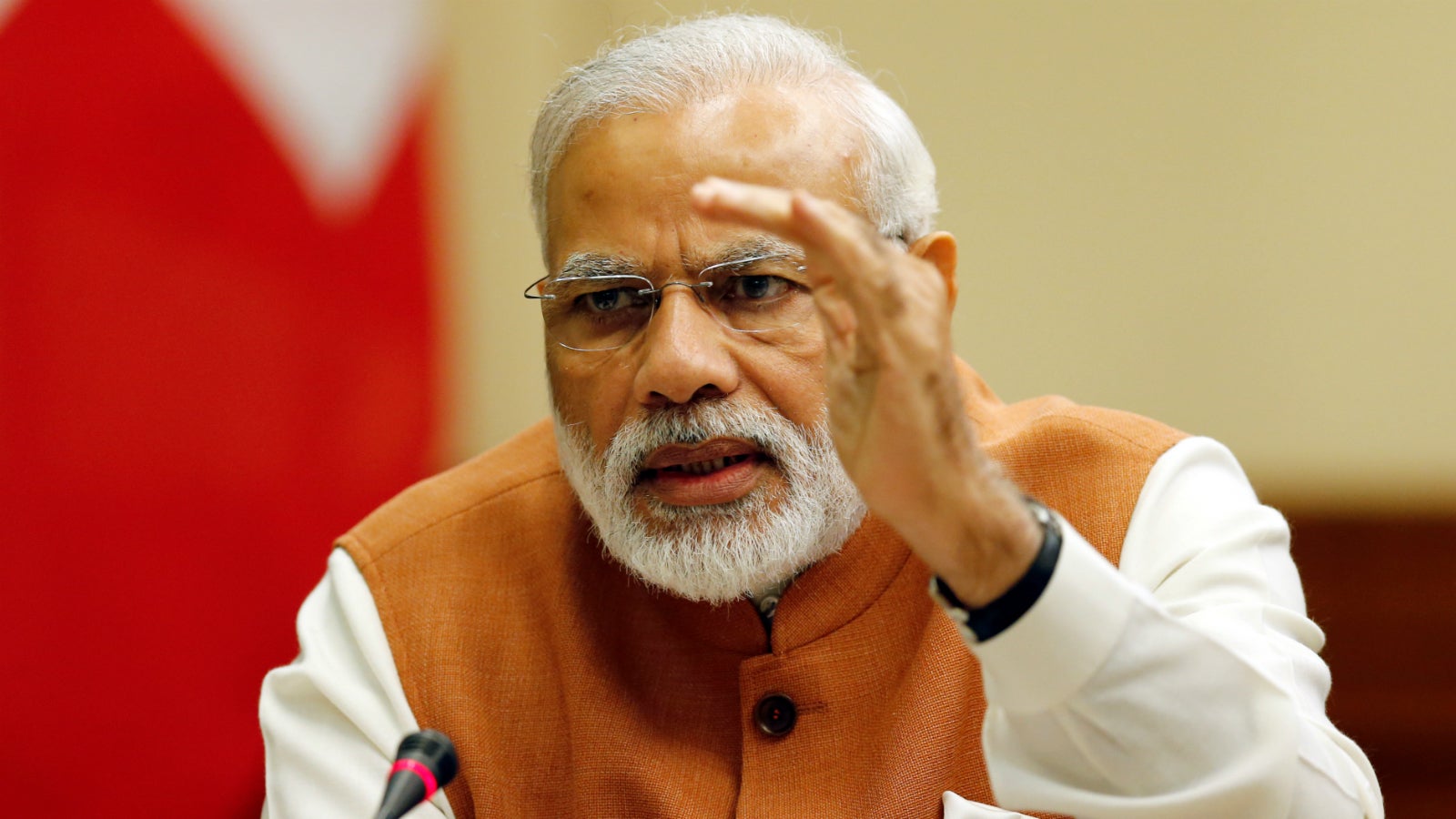Will Narendra Modi actually keep his promise of paying every Indian out of black money hoarders’ loot?
Narendra Modi seems to be going after India’s black-money hoarders with a vengeance.


Narendra Modi seems to be going after India’s black-money hoarders with a vengeance.
Three weeks after he declared two high-denomination currency notes, accounting for 86% of the money in circulation by value, invalid, the Modi government is now targeting unaccounted tax deposits.
On Tuesday (Nov. 29), the Lok Sabha, India’s lower house of parliament, approved an amendment allowing the government to slap a 50% tax on a person declaring unaccounted income. The taxpayer will have to forego 25% of the deposited amount for four years. Those who do not disclose their black money, or unaccounted wealth, and are caught by the income tax (I-T) department will have to pay 60% tax and 30% penalty.
“Concerns have been raised that some existing provisions in the Income Tax Act could possibly be used for concealing black money,” India’s finance minister Arun Jaitley said on Nov. 29. “It is, therefore, important that the government amends the Act to plug these loopholes as early as possible to prevent misuse.” The I-T department, meanwhile, has been tracking bank deposits of over Rs2.5 lakh in the past three weeks.
The amendment follows the government’s amnesty scheme for tax evaders which has swelled up the government kitty by some Rs29,000 crore ($4.3 billion).
“The rich’s black money will be used for the welfare of the poor,” Jaitley said. The government intends to use the money raised under this scheme for developmental activities such as irrigation, housing, construction of toilets and infrastructure, primary education, and primary health.
Windfall gamble
Demonetisation is in any case likely to hand the Modi government a windfall of between Rs3 lakh crore ($45 billion) and Rs4.5 lakh crore ($67 billion).
Various estimates have suggested that some Rs3 lakh crore in old notes will not be deposited or exchanged before the government’s Dec. 31 deadline as this may part of the unaccounted wealth.
Since any currency note with the public is part of RBI’s liability, invalidation of such a large number of notes strengthens the central bank’s balance sheet. RBI could eventually pay the amount represented by the invaldiated notes back to the government as a special dividend.
Since the Nov.08 demonetisation, banks have so far received Rs8.4 lakh crore in deposits and old notes. That is a little over half of the estimated Rs16 lakh crore of high-value currency notes in circulation till Nov. 08.
If this windfall materialises, there are multiple ways the government could make use of it. Writing for The Economic Times, Swaminathan Aklesaria Iyer said:
What will Modi do with this windfall? He can transfer a whopping Rs10,000 into each of 250 million Jan Dhan accounts that have been opened since he came to power. This will absorb Rs2.5 lakh crore, leaving Rs50,000 crore for other purposes like infrastructure. He could also hold a lottery to distribute part of this Rs 50,000 crore to all other citizens, giving every voter a chance to benefit from the bonanza.
Maybe the un-encashed proportion of high-value notes will be only 10%, not 20% as assumed so far. That will mean a lesser bonanza of Rs 1.5 lakh crore. That will still suffice to put Rs5,000 into every Jan Dhan account, and leave Rs25,000 crore for other uses.
It is unclear if Modi will dole out cash directly like this, but its not entirely impossible. In the run-up to the 2014 general elections, he had promised to give every Indian Rs15 lakh by bringing back black money stashed abroad.